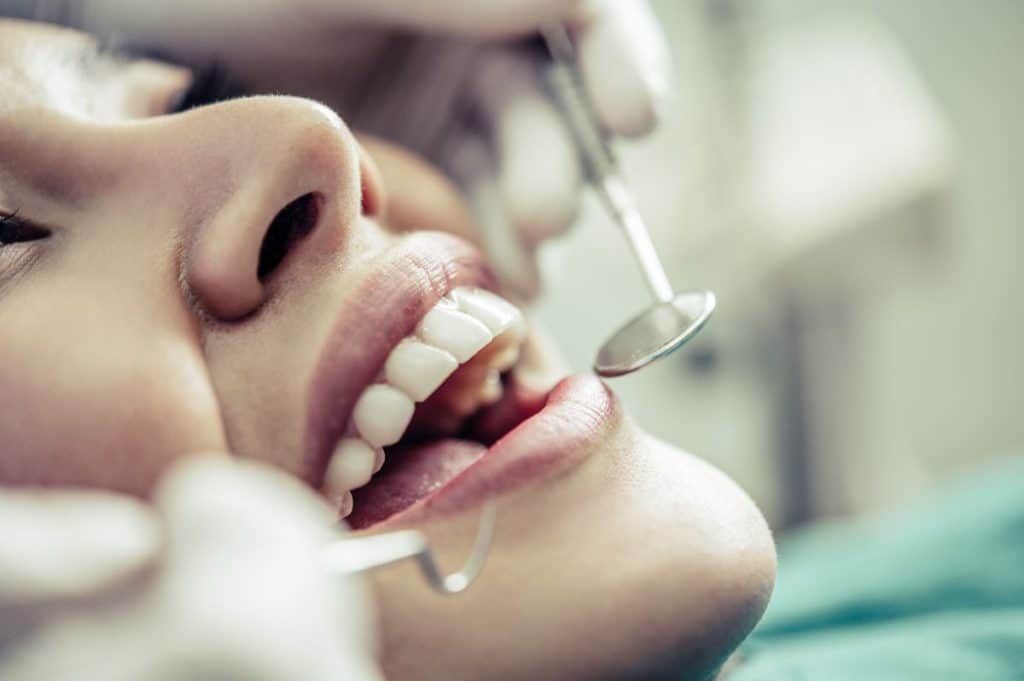
There is nothing better than feeling confident about your smile. It goes with you everywhere; from greeting your partner in the morning, to your first meeting, and all the way to the end of the day when you’re picking up some last minute groceries to take home.
But keeping your smile perfect can be a hard expense to navigate. In 2015, the American Dental Association (ADA) reported that 31% of American households stated they had “very good” oral health.
Dental insurance is one of the best ways to ensure that your pearly whites stay bright.
According to this 2009 report from the National Association of Dental Plans (NADP), 130 million Americans lack dental coverage. Going to the dentist is a crucial aspect of maintaining your overall health, and enrolling in a dental insurance plan can be a big step in helping to cover the costs and maintenance of your teeth.
Why do you need a dental insurance plan?
Dental insurance gives you coverage to help pay for certain expenses associated with dental care, from things like routine cleanings, x-rays or even more complicated procedures like implants.
Regular brushing and flossing can help to keep your mouth in good health, but regular trips to the dentist are essential to help you ensure that your mouth is in the best health. Dentists can often see and treat issues invisible to the naked eye.
Dental health can range from the simple, like removing stains from your teeth, but dentists can also detect early stages of oral cancer, and help your bite alignment if you grind your teeth or experience jaw or neck pain.
Like most healthcare, preventative dental care, such as bi-annual cleanings are favored over treatment-related dental care. This is because prevention visits like regular cleanings are much cheaper than treatment dental visits like root canals or implants.
How can dental health impact overall health?
Your mouth is known as the entry point to your digestive and respiratory tracts and if the bacteria in your mouth is not kept under control with daily brushing, flushing or general good oral hygiene, other systems in your body can be impacted.
This article from Mayo Clinic outlines how poor oral health has been linked to cardiovascular disease, dementia, respiratory infections, and diabetic complications.
To ensure you are in good health from teeth to toes, it may be time to invest in good dental insurance.
How does dental insurance work?
Each month you’ll pay a premium (a monthly fixed cost) to get these rates. You’ll also have an annual deductible (aka a certain amount of money you will have to pay out of pocket for your dental services before your insurance company gets the bill).
Most dental insurance plans use a 100-80-50 coverage structure. And often follows the same grouping of procedures, known as preventive, basic and major. This means:
- Preventive care is usually the most generous and costs like exams, x-rays and fluoride treatments are 100% covered.
- Basic care costs like emergency pain treatment, diagnostic imaging, periodontal cleaning and other minor restorative services are 80% covered.
- Major dental care costs like denture, bridge repairs, relines, extractions, surgery, root canals, prosthodontic, and crown and cast restorations are 50% covered.
Most often than not, dental insurance is also a seperate, standalone plan, but depending on which company you choose can be bundled with other plans like vision care.
Dental insurance for seniors
Dental insurance is a great investment for anyone but especially seniors, as their need for dental care comes at an often higher cost. According to Investopedia, dental insurance for seniors focuses on the specific type of coverage that seniors may need. Things like crowns, root canals, dentures, and tooth replacements. Although these procedures are not unique to older people, there is a higher probability that they will require one or more of these procedures in their lifetime.
An important thing to keep in mind
As mentioned, when it comes to dental care the goal is prevention not treatment. While you might think it’s a great idea to wait before becoming insured, most dental health plans include a waiting or probationary period. This can range from six months to a year. This probationary period helps ensure your insurance company that you’re serious about investing in your dental health and therefore serious about paying into your coverage.
Types of dental insurance
Dental insurance typically comes in three categories; preferred provider option, fee-for-service, and health maintenance organizations.
Preferred Provider Option – Also known as PPO, is one of the most popular plans. Members choose a dentist from a select list. They usually include an annual deductible and coinsurance. This means that once you meet your deductible, your dental plan will kick in and start sharing the costs as part of the coinsurance. With this option, if you choose an in-network dentist, you can expect to have preventative care services 100% covered. allows members to choose a dentist from a select list. This option allows members to save more with competitive fees.
Fee-For-Service – Also known as dental indemnity, this is the most traditional insurance plan that allows users to use a dentist that is not in the network. Unlike the PPO option, fee-for-service asks that an individual pays for the dental service first, and then gets reimbursed.
Health Maintenance Organizations – Also known as HMO dental insurance, are the most affordable plans available. There is usually no deductible, and like PPO, preventative care is usually 100% covered. This plan uses a smaller list of dentists to leverage better rates for its members. They can often provide a very competitive copay for services like cavities, root canals, braces, etc. The best part of an HMO dental insurance plan is that you can start to use the benefits almost immediately. Lastly, if you consider your at-home oral care routine to be pretty detailed and don’t have any cavities, a Dental HMO might be a good option for you.
A dental insurance plan with Delta Dental, Ameritas Dental, Blue Cross Blue Shield, Morgan White, or Madison Dental helps to keep your smile up to date and worry off your mind.
Nevada Benefits makes finding the right dental insurance plan as smooth as possible, we monitor hundreds of companies to ensure you get the best rate. If you’d like to learn more about your dental insurance options, call us at 702-258-1995 or check out our website, Nevadabenefits.com.




